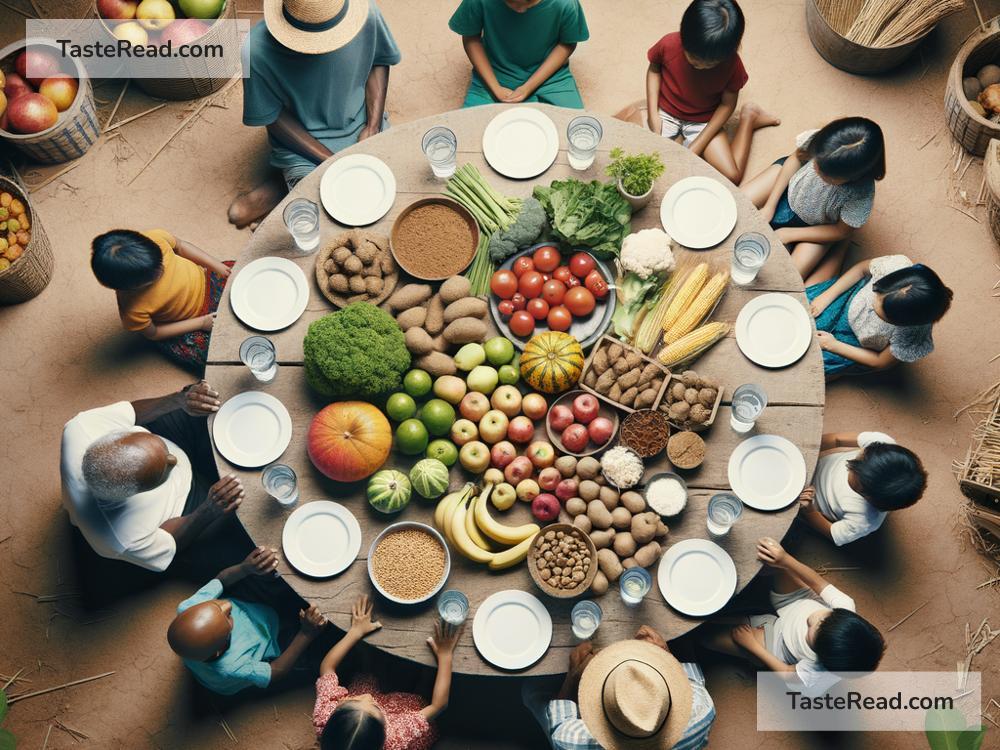The Impact of Food Scarcity on Nutrition
Food is essential for life. It gives us the energy to work, play, and stay healthy. But what happens when there isn’t enough food to go around? Food scarcity, which means not having enough food to feed everyone, is a big problem in many parts of the world. It can have serious effects on people’s health, especially on their nutrition. In this blog, we’ll look at what causes food scarcity, how it impacts nutrition, and what can be done to make the situation better.
What Is Food Scarcity?
Food scarcity happens when there isn’t enough food to meet the needs of a group of people. This can be caused by many factors, such as droughts, natural disasters like floods or hurricanes, war, poverty, or problems in food production and distribution systems. For instance, when crops fail because of bad weather or pests, there is less food available. Similarly, conflicts and wars can disrupt farming or make it unsafe for people to get food.
Food scarcity doesn’t mean that the world has no food at all. In fact, there’s a lot of food produced globally. The problem often lies in fair distribution—some areas have too much food, and others have too little.
How Food Scarcity Affects Nutrition
When there isn’t enough food, people struggle to get the nutrients their bodies need to stay strong and healthy. Nutrition is important because it helps our bodies grow, fight off illnesses, and function properly. Different types of food provide different kinds of nutrients, like proteins, vitamins, carbohydrates, and minerals. A balanced diet with all these nutrients is key to good health. But during food scarcity, it becomes difficult—sometimes impossible—for people to maintain healthy diets.
Here are some specific ways food scarcity impacts nutrition:
1. Malnutrition
Malnutrition happens when people don’t get enough nutrients through their diet. There are two main types: undernutrition and overnutrition. Undernutrition occurs when someone doesn’t consume enough calories, proteins, or vitamins. This can lead to problems like stunted growth, weak immune systems, and difficulty concentrating. Children are especially vulnerable to undernutrition because their bodies are growing and developing.
In some cases, food scarcity might lead to overnutrition. For example, when healthy food options are too expensive or unavailable, people may rely on cheaper, processed foods high in sugar and unhealthy fats. This can lead to obesity, diabetes, and other health issues.
2. Vitamin and Mineral Deficiencies
During food scarcity, people often rely on a limited variety of foods or eat less overall. This can lead to deficiencies in important vitamins and minerals. For example:
– Lack of vitamin A can cause vision problems.
– Not getting enough iron can lead to anemia, which makes people feel tired and weak.
– A shortage of calcium and vitamin D can result in weak bones.
These deficiencies can have long-term effects, especially in children and pregnant women.
3. Impact on Vulnerable Groups
Food scarcity doesn’t affect everyone equally. Children, pregnant women, older adults, and people with chronic illnesses suffer the most. Their bodies need extra nutrients to stay healthy, and food scarcity makes meeting those needs difficult.
Children who don’t get enough food may experience stunted growth and cognitive delays, which can affect their ability to learn and thrive later in life. Pregnant women who don’t get proper nutrition risk giving birth to underweight babies with a higher chance of health problems.
Long-Term Consequences
The effects of food scarcity on nutrition aren’t just short-term—they can leave lasting impacts on communities and countries. Poor nutrition weakens immune systems, making people more vulnerable to illnesses. When entire communities are malnourished, it can strain healthcare systems and reduce productivity. For example, workers who are weak and unhealthy may struggle to do their jobs, impacting economic growth.
Over time, poor nutrition due to food scarcity can trap people in a cycle of poverty. Without access to healthy food, it’s hard to stay strong and earn a stable income. This makes it even harder to afford food in the future.
Solutions to Address Food Scarcity and Poor Nutrition
While food scarcity is a challenging problem, there are ways to fight it and improve nutrition for people around the world. Here are some steps that can help:
1. Improve Farming Practices
Using technology and sustainable farming methods can help grow more food, even in areas with tough conditions like droughts. Farmers can also learn to grow different types of crops that provide better nutrients and resist pests.
2. Strengthen Food Distribution
Making sure food reaches the people who need it most is essential. Governments and organizations can work together to improve transportation networks and eliminate waste in food systems. For instance, food that doesn’t sell in stores can be donated to food banks instead of being thrown away.
3. Educate Communities
Teaching people about nutrition and how to make the best use of available food can make a big difference. Simple solutions, like planting community gardens, can help people access fresh produce and improve their diets.
4. Provide Emergency Food Aid
During times of crisis, such as wars or natural disasters, providing emergency food aid can prevent hunger and malnutrition. Organizations like the World Food Programme deliver food supplies to affected communities.
Conclusion
Food scarcity has serious impacts on nutrition and overall health. It can cause malnutrition, vitamin deficiencies, and long-term consequences that affect entire communities. The problem is complex, but with better farming practices, improved food distribution, education, and humanitarian aid, we can reduce food scarcity and ensure that everyone gets the nutrition they need to live a healthy, fulfilling life. Solving food scarcity matters not just for individuals, but for the future of our global society. Let’s work together to make hunger a problem of the past.


